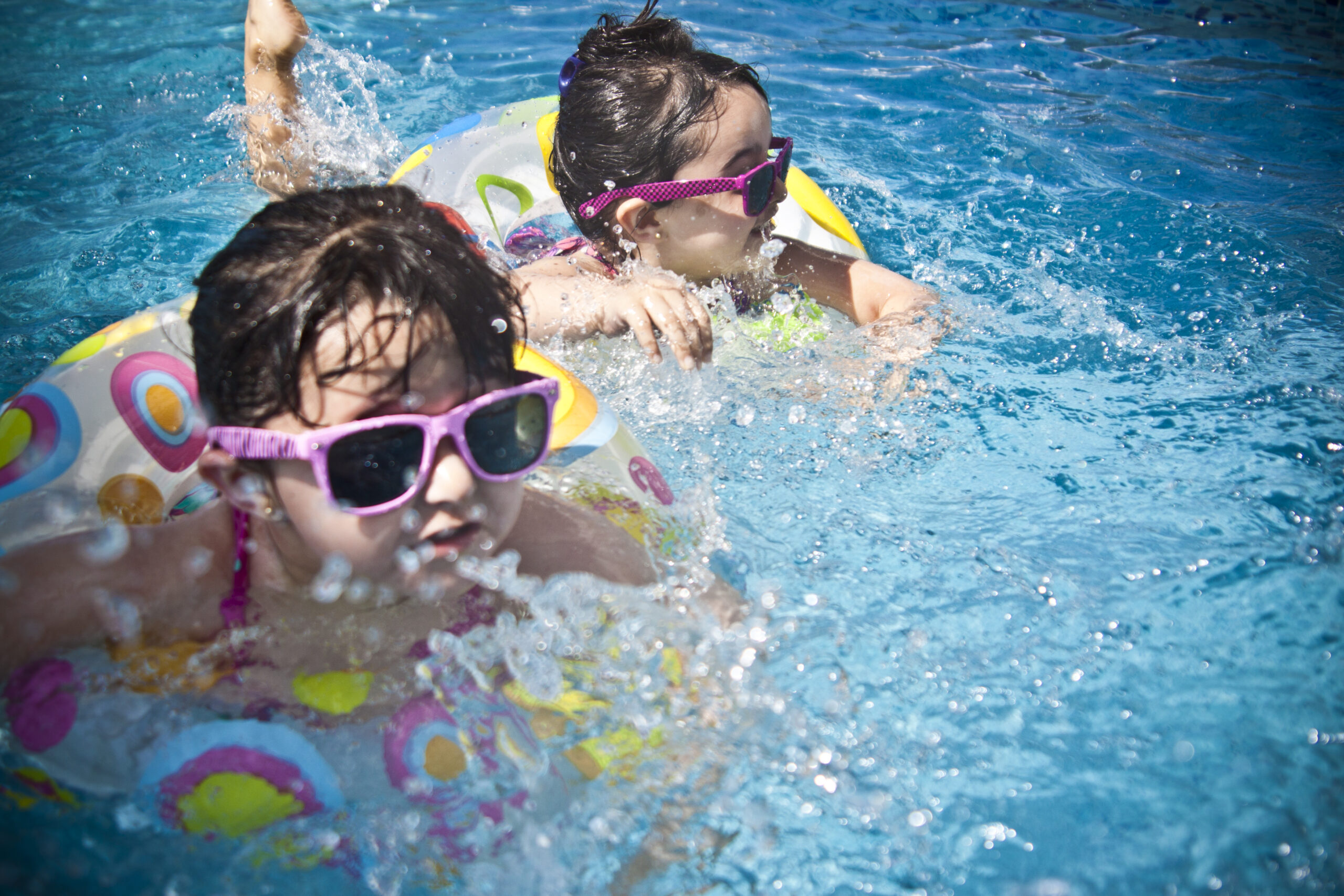The Delightful Benefits of Baby Swimming Classes and Essential Water Safety Tips
Hello wonderful parents! It’s time to dive (literally!) into a thrilling water journey with your little ones. Introducing them to the sparkling waters, not only quenches their curiosity, but also serves a multitude of benefits, including safety, health and developmental advantages. With this comprehensive guide, you will explore the sweeping benefits of baby swimming classes, along with some indispensable water safety tips. So grab your goggles, and let’s take the plunge!
Benefit 1: Say Hello to Improved Motor Skills!
Why it’s Significant
First off, swimming is one cheerful way to stimulate your baby’s gross and fine motor development. The natural resistance of water supports muscle formation and motor skills. It’s an opportunity to push, pull, splash, and laugh!
Grasp the Process
Now imagine this: your water baby is floating on his back, kicking his tiny feet and arms in a rhythmic pattern. Voila, he’s practicing bilateral coordination! This coordination lays the cornerstone for future activities like walking, running, and even writing.
Benefit 2: An Open Window to Boost Cognitive Abilities
The Awe-inspiring Connection
Swimming isn’t just a muscular affair—it has its brains! Studies have shown a positive correlation between early swimming and the advancement of cognitive abilities. This includes better language development, fine motor skills, and even a potential for advanced mathematical skills.
A Peep into the Scene
Envision your little one responding to prompts such as ‘kick the legs’ or ‘blow bubbles’. He is responding to multiple instructions at once, hence fostering his learning, memory, and understanding capabilities. That’s some ‘water-full’ learning!
Benefit 3: Promoting Emotional and Social Development
It’s a Joyful Journey Together
Amid the splashes and giggles, your little one is not just learning to swim, but also connecting with you and their swim mates. This interaction within a friendly group setting can significantly boost their emotional and social skills.
Diving into Important Water Safety Tips
Invigorated by the idea of baby swimming classes? Wonderful! But remember, safety is paramount. When dealing with water, even a momentary lapse in vigilance can lead to peril. Let’s look at some proven water safety tips for your peace of mind.
Constant Supervision is Non-Negotiable
Never, ever, leave your child alone near any water source, be it a pool, bathtub, or even a bucket filled with water. A responsible adult should always be within arm’s reach to ensure safety.
Equip Yourself with Basic Water Safety Knowledge
Familiarize yourself with CPR techniques, understand the basics of drowning, and consider enrolling in water safety classes. By doing so, you’re prepared to tackle unforeseen situations.
Let’s ensure your baby’s swimming adventure is filled with laughter, learning, and complete safety. Ready to make a splash? Let’s jump in!

Credit: Pexels
Why Water Babies are Happy Babies: Learn about the Benefits of Baby Swimming Classes & Water Safety Tips
Greetings to all the splendid parents out there! Today, let’s take a dip into the world of baby swimming classes and learn about their multitude of benefits along with some crucial water safety tips. It’s time to strap on your swim caps, blow up the arm bands and jump in, bubbly parents!
Benefit 1: Improved Motor Skills – Swimming Babies are Moving Babies!
Understanding the Value
Swimming is a delightful method to stimulate your baby’s motor development. Being in water naturally motivates the tykes to push, pull and splash around – helping fostering their muscle formation and motor coordination.
On Seeing it in Action
Think of your tiny tot, floating on their back, rhythmically moving their small legs and arms. They’re practicing their bilateral coordination that forms the foundation for future activities like walking and writing.
Benefit 2: Boosting Cognitive Abilities – Young Swimmers are Sharp Thinkers!
Unraveling the Connection
Immersion in swimming doesn’t just work out muscles—it exercises the brain too! Early exposure to swimming can lead to better language development, improved motor skills, and even foster mathematical abilities.
Show and Tell!
Consider an instance where your budding swimmer is responding to instructions like ‘flutter the feet’ or ‘blow bubbles’. They’re actively processing multiple commands, thereby enhancing their cognitive learning and comprehension skills.
Benefit 3: Emotional and Social Development – Making Waves and Friends too!
It’s More than Just a Splash
Swimming classes are full of fun, interaction, and laughter. Apart from learning to swim, your little one is also establishing connections with you, as well as with their swimming buddies, thereby strengthening their emotional and social skills.
Side-Stepping the Deep End – Water Safety Tips
While the idea of baby swim classes sounds fun, safety should always be the topmost priority. With water, a moment’s carelessness can have serious consequences. Here are some essential water safety tips for you.
Never Look Away – Constant Supervision
No kid, however comfortable they are with water, should ever be left unattended near any water source. A responsible adult should always be within a grasping distance to ensure their safety.
When in Water, Be a Life Saver – Understanding Basic Water Safety
Equip yourself with the basic water safety knowledge. Learn CPR techniques, understand drowning symptoms, and even consider taking a few water safety classes.
Trust us, your baby’s experience with swimming can make them healthier, smarter, and happier. Ready to dive into the delightful waters with your little one? Come on in, the water’s fine!
Benefits of Baby Swimming Classes and Water Safety Tips
With ever-evolving research and child development findings, it has now become necessary to introduce your babies to swimming at an early age. Here are the top 5 things parents should know when preparing for baby swimming classes and top safety tips.
1. Boosts Mental and Physical Development
Swimming classes are essential for enhancing both mental and physical development in babies. The regular coordination of limbs boosts muscle development and overall physical growth. In terms of mental benefits, interactive water activities enhance cognitive learning and language development.
2. Enhances Water Confidence
Swimming lessons help infants to become familiar with the sensation of water and hence, they develop water confidence and reduce the fear of water. Water confidence is crucial as it helps prepare young children for potential water hazards.
3. Encourages Parent-Child Bonding
Water classes provide an ideal situation for parents and children to interact, forming a strong bond. The shared experiences during water exercises lead to enhanced emotional bonding and attachment.
4. Emphasizes Water Safety
Parents should equip themselves with essential water safety tips. Never leave a child unattended in a pool or bathtub, even for a second. Small children can drown in less than 2 inches of water. Use safety devices like pool fencing and baby floats under professional supervision.
5. Proper Hydration and Sun Protection
Whether swimming indoors or outdoors, hydration is critical. Ensure your baby drinks plenty of liquids to stay well-hydrated. When swimming outdoors, don’t forget to use a waterproof sunscreen, and avoid the intense midday sun to protect your baby’s sensitive skin.
Remember, baby swimming classes and water safety are not just fun but are skills that, when ingrained from an early age, could save lives. As such, it’s important to protect our children and make the most out of their swimming lessons.
For more great articles please see here. For more information on raising children see here
Disclaimer
The articles available via our website provide general information only and we strongly urge readers to exercise caution and conduct their own thorough research and fact-checking. The information presented should not be taken as absolute truth, and, to the maximum extent permitted by law, we will not be held liable for any inaccuracies or errors in the content. It is essential for individuals to independently verify and validate the information before making any decisions or taking any actions based on the articles.




